Evolution of the Viennese Women’s Counseling Scene
From the late 1970s to the early 1980s, the Viennese women's movement underwent significant transformation, evolving into a feminist project movement. The once-central group, the Action of Independent Women AUF, no longer solely defined the Austrian women's movement. The movement's continuous growth and diversification attracted women with varied perspectives and goals, leading to the establishment of numerous women's projects and associations in Austria from the 1980s onwards. This shift away from a singular central group marked a fundamental change. In the words of Helmut Zilk, mayor of Vienna from 1984 to 1994, "These associations sprout like mushrooms from the ground" (cited after Erika Fischer, 1988).
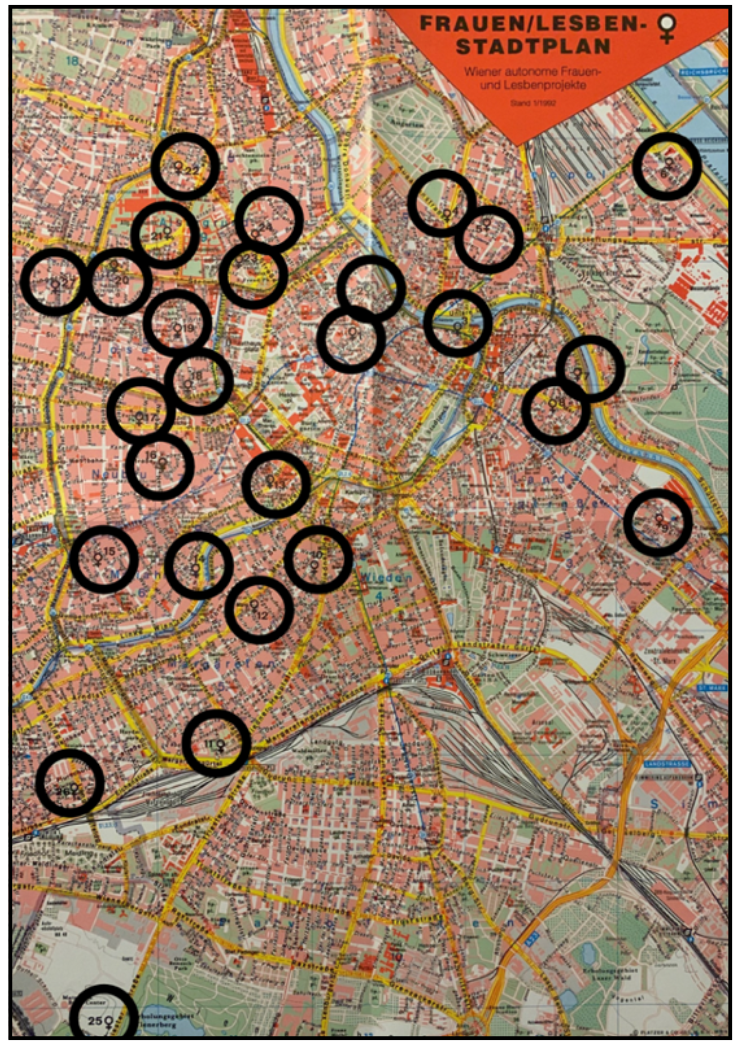
Funding for women's projects and counseling centers was often dependent on the political climate and the support from funding agencies and ministries. It was thus usually characterized by precariousness and voluntary or unpaid work. Nevertheless, despite these hurdles, a "feminist infrastructure" (Geiger, 2012, p. 52) emerged from 1970 to 2000, in which a diverse landscape of feminist cultural and social programs was established in Vienna. Of the many projects that arose from the second wave of the women's movement, those in the context of women's counseling services can be grouped around five thematic focal points: psy-services and anti-violence work, gender and sexuality issues, migration and education, career and labor market, and medical healthcare.
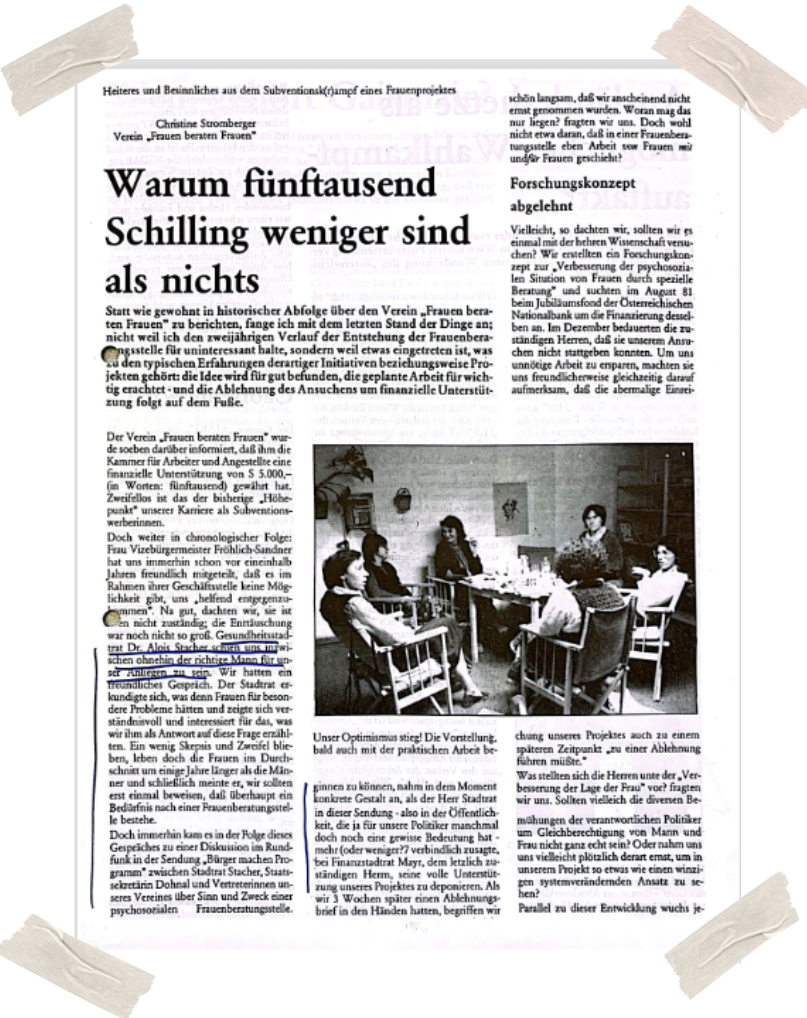
Psy-services and anti-violence work
The women's project movement in Austria had its roots in activism.
The first women's counseling project, INFRA, was established in 1974 within the activist collective AUF, offering a broad range of services. Subsequent women's projects, like Frauen beraten Frauen (Women Counsel Women) in 1981 and Verein Notruf (Association Emergency Call) in 1982, concentrated on anti-violence efforts and psychological counseling. The Association Emergency Call initiated a telephone emergency hotline for raped women, which is active to this day. In 1988, the AÖF – Autonome Österreichische Frauenhäuser (Autonomous Austrian women shelter's) was founded as an umbrella organization for thirteen autonomous women's shelters. Other initiatives included the Mädchenberatung – Counseling Centre for sexually abused Girls and Young Women, TAMAR for sexually abused women, initiated as a joint project by the Catholic Women's Movement and Protestant Women's Movement, Ninlil for women with disabilities, and the City of Vienna's 24-hour Women's Emergency Hotline. The Protection against Violence Act of 1997 established Violence Protection Centers in 1998 across Austria, emphasizing legal and psychosocial support.
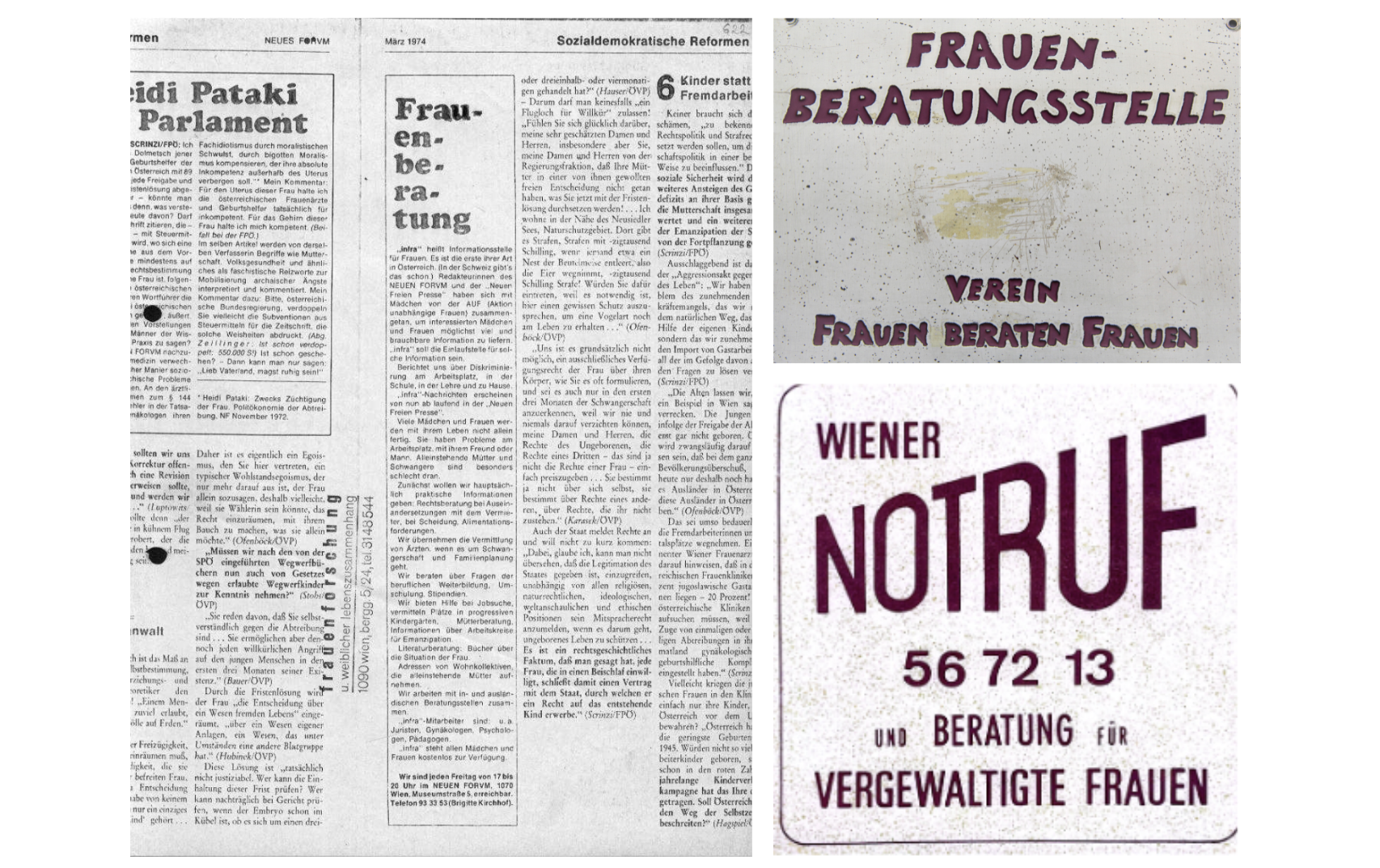
Gender and sexuality issues
Another priority of Vienna's counseling landscape, which began to emerge early and developed out of the autonomous women's movement, was the focus on gay and lesbian counseling, as well as later queer lifestyles and gender identity concerns.
The Rosa Lila Villa, founded in 1982 and now operating as Türkis Rosa Lila Villa, played a vital role as a counseling and community hub. It offered individual and group counseling, empowerment projects, and a café. Subsequently, the WASt—Wiener Antidiskriminierungsstelle für LGBTIQ Lebensweisen (Vienna Anti-Discrimination Agency for LGBTIQ Lifestyles) was established in 1998. The Courage Counseling Center was founded in 1999, providing free and anonymous counseling, therapy, crisis intervention, and health care for same-sex and transgender lifestyles.
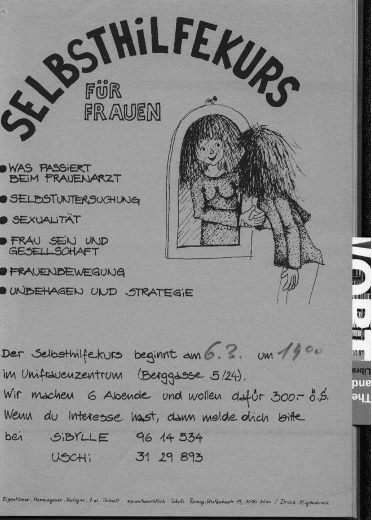
Migration and education
The emerging counseling scene's third primary focus was migration counseling and education for migrant women.
In 1983, the association Learning Together - Berlikte Ögrenelim was founded, providing counseling, education, and psychotherapy, with a particular emphasis on Turkish migrant backgrounds. The self-organized Association of Women from Turkey and Austria in Solidarity, now known as Peregrina, was established in 1984, offering multilingual support for immigrant women and their families, including psychological and legal counseling. The association LEFÖ - Latin American women who emigrated to Austria was founded in 1985, expanding its services over time, including theIntervention Centre for Trafficked Women (IBF). Other organizations, like Orient Express, Romano Centro, Project Integration House, Hemayat, and Station Wien, further enriched feminist counseling on migration, offering support for various communities and addressing specific issues such as forced marriage and war trauma.
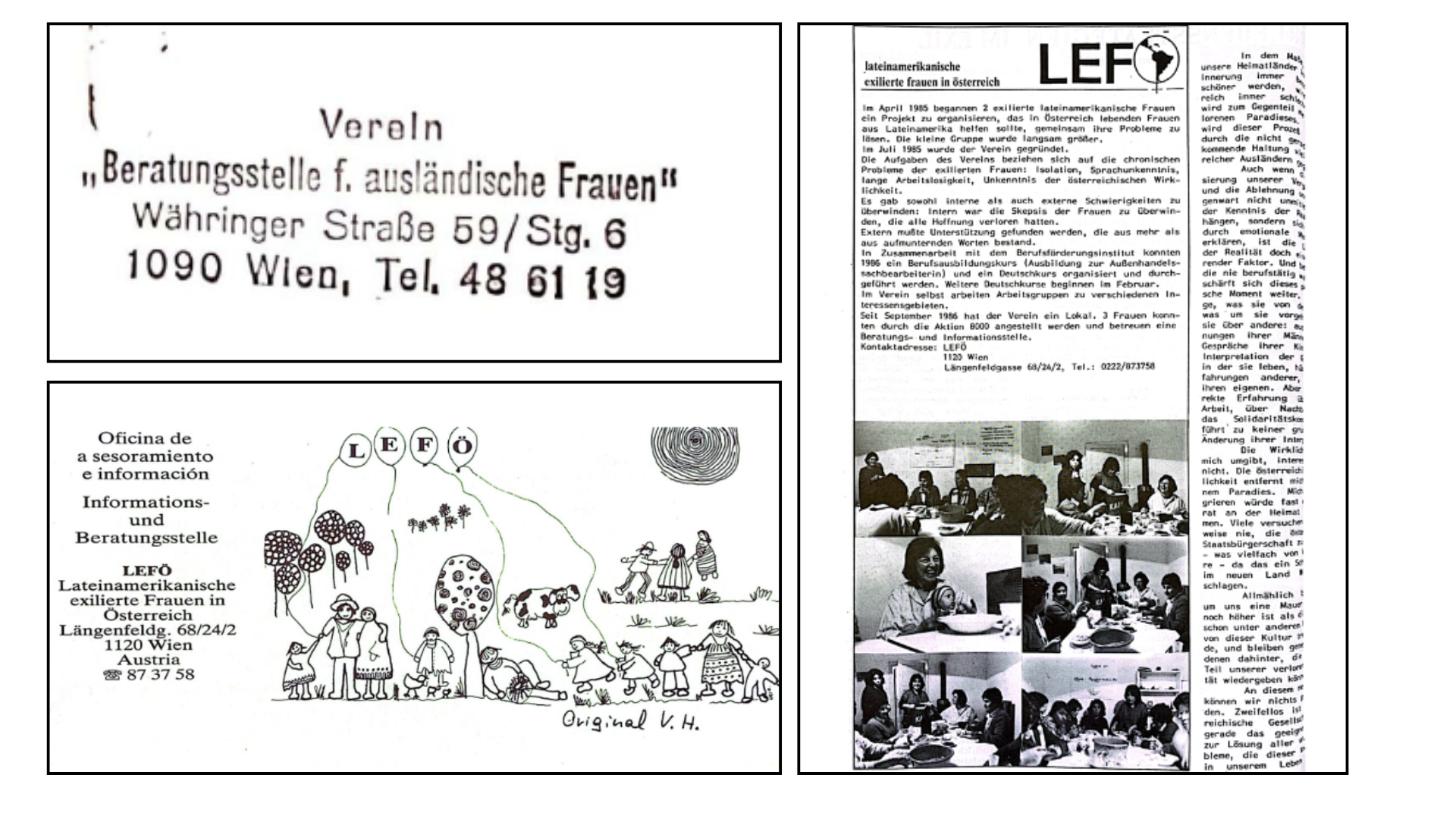
Career and labor market
Vienna's feminist project movement also emphasized career and labor market counseling.
Sprungbrett, founded in 1986, focused on promoting non-traditional career decisions for girls. Centered on girls and young women, the association provides counseling, support for professional development, and empowerment initiatives. The project Amandas Matz, established in 1991, targeted unemployed girls and young women, offering vocational advice and support until its conclusion. Concurrently, in 1991, the AbzAustria counseling center (later AbzMeidling) was founded, aiming to assist women in the labor market.
Medical healthcare
Lastly, a notable focus in Vienna's feminist project scene was low-threshold medical healthcare for women.
In 1976, the outpatient clinic Ambulatorium für Schwangerenhilfe (Outpatient Clinic for Pregnancy Care; renamed pro:women in 2005) emerged at Fleischmarkt, in the first district of Vienna. This clinic has provided support and care for pregnant women since its foundation. Founded in 1992, the Women's Health Centre FEM provides advice, support, and information on health matters for women and girls as part of Vienna's hospital care. In 1999, an additional location, FEM SÜD, was opened to complement and expand their services.
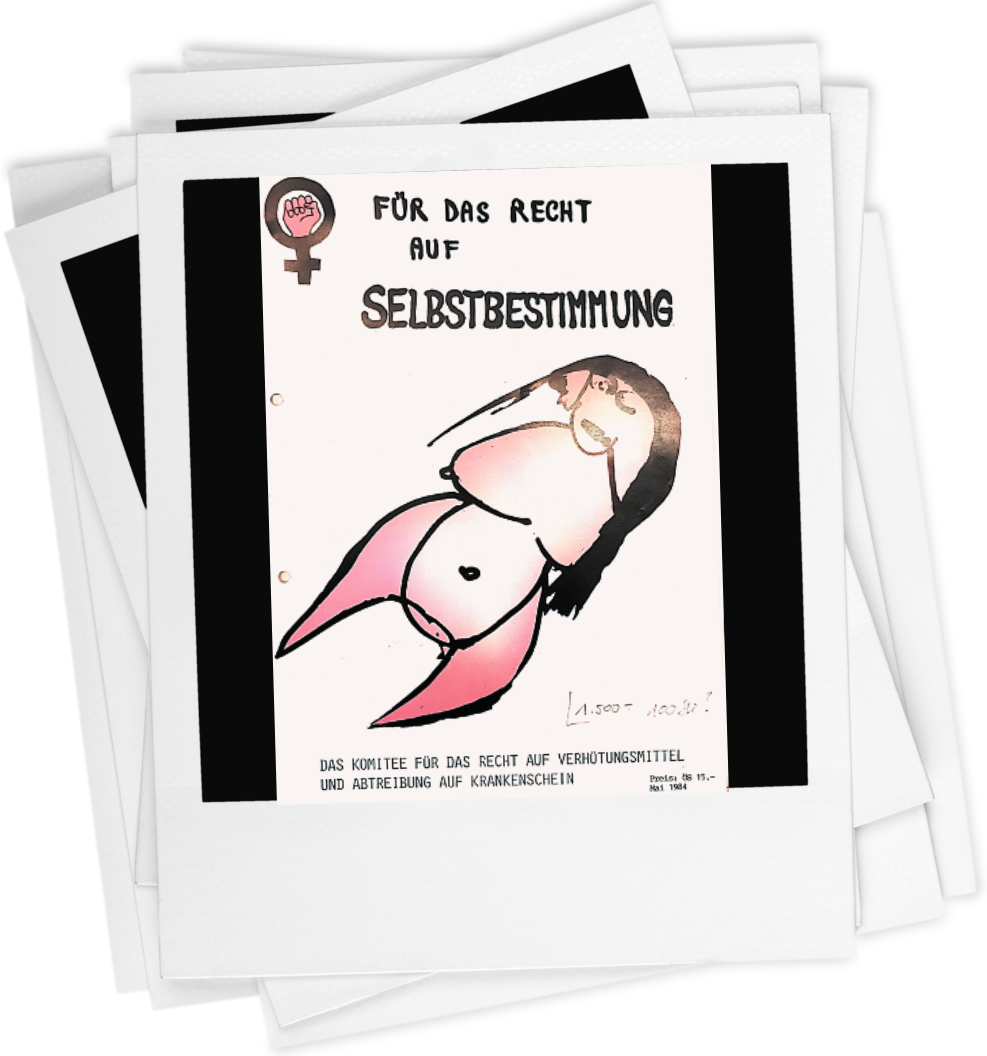
Notably, from 1970-2000 alone, around 29 feminist counseling service projects were established in Vienna. During this time, the women's projects began to professionalize their work, and in "almost all major fields of work of Austrian women's projects from women's shelters to emergency calls to migrant women's organizations, feminist media and information and documentation institutions had institutionalized their cooperation - in some cases also formally as an association or federation" (Geiger, 2012, p. 56), with many of these associations still existing today.
Some of the associations have joined together over time in various networks and alliances, such as the Network for Women's and Girls' Counseling Centers Austria, the Dachverband organization or the Association of Autonomous Austrian Women's Shelters. This collective effort to reinforce the presence of feminism in Austria is a powerful demonstration of unity and solidarity. Despite the ongoing transformations and financial challenges faced by some of these associations, their sustained existence and achievements continue to stand out to this day.
References
Fischer, E. (1998). "Auch ich habe 20 Jahre ehrenamtlich gearbeitet". Bericht über die Zermürbung von Frauenprojekten in Österreich. Last retrieved on September 15, 2023, via http://www.erica-fischer.de/texte/frauen/Frauenprojekte_frauen.html
Geiger, B. (2012). "viel geschehen" – frauenbewegte Kontexte der ‚zweiten Welle‘ in Österreich. In B. Krondorfer & H. Grammel (Eds.), Frauen-Fragen. 100 Jahre Bewegung. Reflexion. Vision (pp. 51- 60). Promedia.
